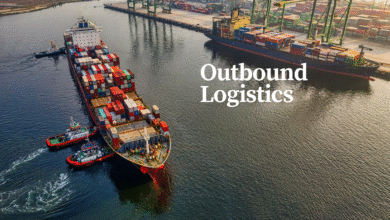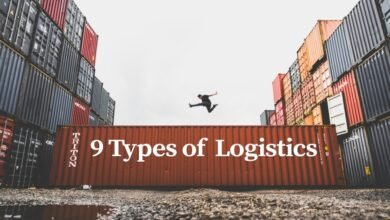How Procurementnation.com Logistics Management System works

Introduction to Procurementnation.com Logistics Management
In today’s fast-paced world, efficient logistics management is critical to business success. Procurementnation.com logistics management is designed to streamline the entire supply chain process, ensuring smooth transportation, warehousing, and inventory management. By leveraging advanced technology and optimized processes, Procurementnation.com helps businesses manage their logistics operations effectively, minimizing costs and improving overall efficiency.
Importance of Logistics Management
Logistics management plays an essential role in any organization that deals with the movement of goods. For Procurementnation.com logistics, it involves managing the storage, transportation, and delivery of products in a way that maximizes operational efficiency while meeting customer expectations. Efficient logistics management ensures timely delivery, reduces operational costs, enhances customer satisfaction, and supports overall business growth. In a competitive market, companies that neglect logistics management risk facing delays, increased costs, and dissatisfied customers.
Basic Functions of Logistics Management
Procurementnation.com logistics covers a range of functions that are vital to the smooth operation of supply chains. These core functions include:
Transportation
The movement of goods from one location to another. Procurementnation.com logistics ensures that transportation is done efficiently, using the best possible routes and methods to reduce costs and delivery times.
Warehousing and Storage
Efficient storage of goods in a well-managed warehouse system is crucial to maintaining inventory flow. Procurementnation.com logistics optimizes warehousing solutions to minimize storage costs while maintaining accessibility.
Inventory Management
Keeping track of stock levels is key to avoiding both overstocking and stockouts. Procurementnation.com logistics ensures that businesses can manage their inventory efficiently, with real-time tracking systems to monitor inventory levels.
Order Fulfillment and Last-Mile Delivery
The final step in delivering products to customers is last-mile delivery. Procurementnation.com logistics ensures that the order fulfillment process is seamless, from receiving the order to delivering it to the customer’s doorstep, with optimal speed and accuracy.
Types of Logistics Management
Understanding the various types of logistics management helps businesses streamline their operations. The main types are:
Inbound Logistics
This refers to the process of receiving, storing, and distributing goods that are required for production. Procurementnation.com logistics helps businesses manage inbound logistics by ensuring timely delivery of raw materials and supplies to production units.
Outbound Logistics
Outbound logistics involves the movement of finished products from the manufacturer to the customer or retailer. Procurementnation.com logistics excels in managing outbound logistics, ensuring that products reach customers on time and in good condition.
Third-Party Logistics (3PL)
Third-party logistics providers manage one or more aspects of logistics operations for a business. Procurementnation.com logistics works with trusted 3PL partners to offer businesses comprehensive logistics solutions, including transportation, warehousing, and inventory management.
Difference Between Supply Chain & Logistics Management
While logistics and supply chain management are often used interchangeably, there is a subtle difference. Logistics management focuses specifically on the movement and storage of goods, whereas supply chain management encompasses a broader range of activities, including procurement, production, and distribution. Procurementnation.com logistics focuses on optimizing the transportation and storage aspects of the supply chain, making it an essential part of an organization’s overall supply chain strategy.
Logistics Value Proposition
The value proposition of Procurementnation.com logistics lies in its ability to reduce operational costs, increase efficiency, and enhance customer satisfaction. By optimizing transportation routes, managing inventories accurately, and improving order fulfillment processes, Procurementnation.com logistics adds value to a business’s supply chain. The end result is faster deliveries, reduced costs, and improved service levels that give businesses a competitive edge in the marketplace.
Goals & Strategies in Logistics Management
Effective logistics management requires clear goals and strategies. Some of the key objectives of Procurementnation.com logistics include:
- Cost Reduction: By optimizing transportation routes and reducing storage costs, businesses can achieve significant cost savings in their logistics operations.
- Customer Satisfaction: Delivering products on time and in excellent condition is crucial for customer satisfaction. Procurementnation.com logistics ensures that orders are processed and delivered promptly, helping businesses maintain strong customer relationships.
- Operations Efficiency: Streamlining logistics processes to eliminate bottlenecks and inefficiencies is essential for smooth operations. Procurementnation.com logistics focuses on continuous improvement to boost operational efficiency.
Substituting Information for Inventory
One of the key advancements in modern logistics is the use of information systems to replace traditional physical inventory. By implementing real-time tracking and digital inventory management systems, businesses can reduce the need for large physical stockpiles. Procurementnation.com logistics uses advanced data analytics to provide businesses with accurate and real-time information, helping them make better inventory decisions without overstocking.
Reducing Supply Chain Partners to an Effective Number
Managing a large number of supply chain partners can be complex and inefficient. By focusing on strategic partnerships with key suppliers, businesses can streamline their logistics processes. Procurementnation.com logistics helps companies identify which partners add the most value and work to eliminate unnecessary ones, reducing complexity and improving operational efficiency.
Pooling Risks in Logistics
Logistics involves numerous risks, including transportation delays, damaged goods, and inventory shortages. Pooling these risks through shared logistics services can help businesses mitigate the impact of disruptions. Procurementnation.com logistics works with partners to manage risks effectively, ensuring businesses can handle unforeseen events without significant setbacks.
Flows of Goods and Information in Logistics
There are three key flows in logistics management:
Goods Flow
This is the physical movement of products through the supply chain. Procurementnation.com logistics ensures that goods flow smoothly from suppliers to manufacturers, and finally, to customers.
Information Flow
Information flow refers to the data exchanged between different logistics partners. With real-time tracking and digital communication tools, Procurementnation.com logistics ensures that information flows efficiently throughout the supply chain, allowing for better decision-making.
Financial Flow
Managing payments and financial transactions is also an important part of logistics. Procurementnation.com logistics ensures that the financial flow aligns with the movement of goods and information, streamlining the entire process.
Key Challenges in Logistics Management
Logistics management faces several challenges, including:
Rising Transportation Costs
With fluctuating fuel prices and the increasing demand for faster deliveries, transportation costs are a major challenge. Procurementnation.com logistics helps mitigate this challenge by optimizing routes and leveraging technology to reduce costs.
Supply Chain Disruptions
Natural disasters, political instability, and unforeseen events can disrupt the supply chain. Procurementnation.com logistics focuses on developing contingency plans and diversifying supply sources to minimize the impact of disruptions.
Complexity of Last-Mile Delivery
Last-mile delivery is often the most complex and expensive part of logistics. Procurementnation.com logistics uses innovative solutions to make last-mile delivery more efficient, reducing costs and improving delivery times.
Technology’s Role in Modern Logistics Management
Technology is revolutionizing logistics management. Procurementnation.com logistics takes full advantage of cutting-edge technologies such as:
- Internet of Things (IoT): IoT devices provide real-time tracking of goods, helping businesses monitor inventory levels, vehicle conditions, and more.
- Artificial Intelligence and Machine Learning: AI and machine learning algorithms optimize routes, predict demand, and enhance decision-making.
- Blockchain for Transparency: Blockchain technology ensures transparency in logistics by providing a secure and immutable record of all transactions.
- Autonomous Vehicles and Drones: Autonomous vehicles and drones are being increasingly used to reduce delivery times and costs, especially for last-mile deliveries.
The Future of Logistics Management
The future of logistics management is evolving rapidly, with technology continuing to shape the industry. The rise of automation, AI, and smart devices will continue to transform the logistics landscape. Procurementnation.com logistics is poised to adapt to these advancements, helping businesses stay ahead by offering cutting-edge logistics solutions that enhance efficiency, reduce costs, and improve customer satisfaction.
Final Remarks on Procurementnation.com Logistics Management
In conclusion, Procurementnation.com logistics management is a game-changer for businesses looking to optimize their supply chain operations. By focusing on key areas like transportation, warehousing, inventory management, and last-mile delivery, Procurementnation.com ensures that logistics is not only efficient but also cost-effective. With its innovative solutions and commitment to customer satisfaction, Procurementnation.com logistics management is the future of supply chain optimization.




One Comment